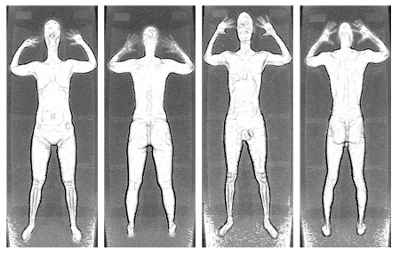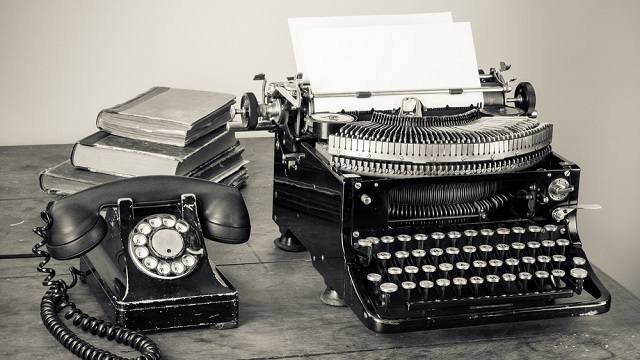The Non-Compliance Revolution

This post originally appeared in The Daily Caller
“This is America – everything’s illegal.” – New York City attorney
With Independence Day come and gone, and in light of populist uprisings elsewhere in the world, some have asked if America might undergo its own revolutionary upheaval. Specifically, with the exponential growth of government, including the regulating or outlawing of ever-more areas of daily life, liberty-minded Americans wonder when and if their countrymen will say, “enough is enough.”
But armed insurrection is so 18th Century. It went out of style with muskets and pantaloons. It is possible, however, that America’s rebirth of freedom could take a more benign form – that of citizens simply refusing to obey the encroaching demands of their government. There is a surprising amount of power to be found in two little letters: “no.”
Alas, “no” is hard to come by. When security check-points appear at subway stations during morning rush hour, or federal workers indecently paw at passengers boarding a plane, or natural resources officers demand licenses before you can drop a line in your favorite fishing spot, almost no one resists.
When free-born citizens capitulate in this way, one expects they do so out of surprise at the officious overkill, or they make the quick calculation that compliance will minimize immediate hassle and allow them to go about their day.
But ever-expanding government makes it more and more difficult to comply, even if citizens want to. This applies to all manner of bureaucracy, seen and unseen. For just one example: You, gentle reader, cannot know if you filed your federal taxes correctly.
You cannot know this because the tax code is simply too complex and arbitrary. Within such a system, there can be no objective verification. Therefore, if it comes up for review, the accuracy of your return will be determined on a subjective basis by a bureaucrat who will not deign to divulge their first name.
When compliance becomes impossible, well-meaning citizens may just stop trying. Precedent can be found in the government’s own behavior. When IRS agents refuse to answer questions about their conduct, even as they spend taxpayer money on “business expenses” that would not survive one of their own audits, citizens rightly wonder why they should bother keeping their own books in order.
Or when the Obama administration decides to suspend problematic portions of its own health care law – as though legislation were a buffet, from which the Executive can take or leave what it likes – citizens may decide it’s too onerous to fill out that 20-page form, or apply for that required license, and they would have a valid point.
At times, non-compliance can carry a heavy price, exacted by authorities whose dearest hope is that you will not comply: namely, over-eager officers of the law.
As a law-abiding citizen, and a law-and order conservative, I have a hard time trusting the police. This applies particularly to today’s ubiquitous, militarized variety, outfitted in “the full Robocop,” as Mark Steyn puts it.
My mistrust has been a long time coming. Bit by bit, seeing abuses of petty authority and the relentless transformation of police departments into paramilitary units, I have ceased to see them as keepers of the peace. Instead of disrupting crime, it seems they prioritize controlling and harassing innocent people.
Specifically, as noted in Radley Balko’s new book, Rise of the Warrior Cop, militarized police increasingly see civilians as the enemy, rather than the employers they are paid to protect. SWAT teams are dispatched to serve warrants on non-violent suspects, or to perform routine safety inspections.
My jaundiced eye is also directed at the quasi-constabulary brigades assembled by every federal, state and local agency, patrolling all aspects of American life from the airport to the fishing pond.
These are government apparatchiks who, by their wardrobe and mien, falsely claim the authority of law enforcement. Perhaps the most obvious example are the blue-shirted Paul Blarts of the TSA, who prowl America’s airports dressed as though they’re about to invade Poland, complete with tin badges blaring “Officer,” strongly implying they are police when, in fact, they are nothing of the kind. And always, always, we are told their excesses are about keeping us “safe.”
As a handy reminder, be suspicious whenever someone says they’re doing something “for your safety.” Doubtless, there are situations in which the statement is sincere. But in today’s nanny-cop America, “safety” is the elastic subterfuge employed to confiscate freedom.
More directly, whenever someone claiming to be a policeman, or some other kind of enforcement “officer” comes hulking up to you in the full get-up – knee-pads, Kevlar, Velcro and so on – you, as a free citizen and inheritor of God-given, enumerated liberties dating back at least to the English Bill of Rights of 1689, if not the Magna Carta of 1215, have an obligation to laugh in that person’s face. If the best you can do is laugh into their Bane-mask, so be it.
Don’t get angry, or go for one of their many guns. That could get ugly and, in many cases, they hope it does (as Leonardo DiCaprio cynically exclaimed of cops in The Departed, “They signed UP to use their guns!”). Someone who feels the need to weaponize themselves in order to interact with the general public may be monumentally insecure, but they can also cause tremendous damage. Think of Barney Fife in an Iron Man suit. Or, for younger television viewers, imagine Dwight Schrute’s later iterations of Recyclops, only with live ammunition.
Compliance is demanded daily of Americans, accompanied by the implicit or overt threat of force. One should neither expect nor desire violent insurrection in response. But, as a people to whom freedom was bequeathed by generations who pledged their lives to win it, today’s citizens need only learn to say no.
Does the spirit of 1776 abide within modern Americans? Or will they continue to cede their liberties, preferring simply to get through their days – that is, until they awake to find their days are no longer their own?





